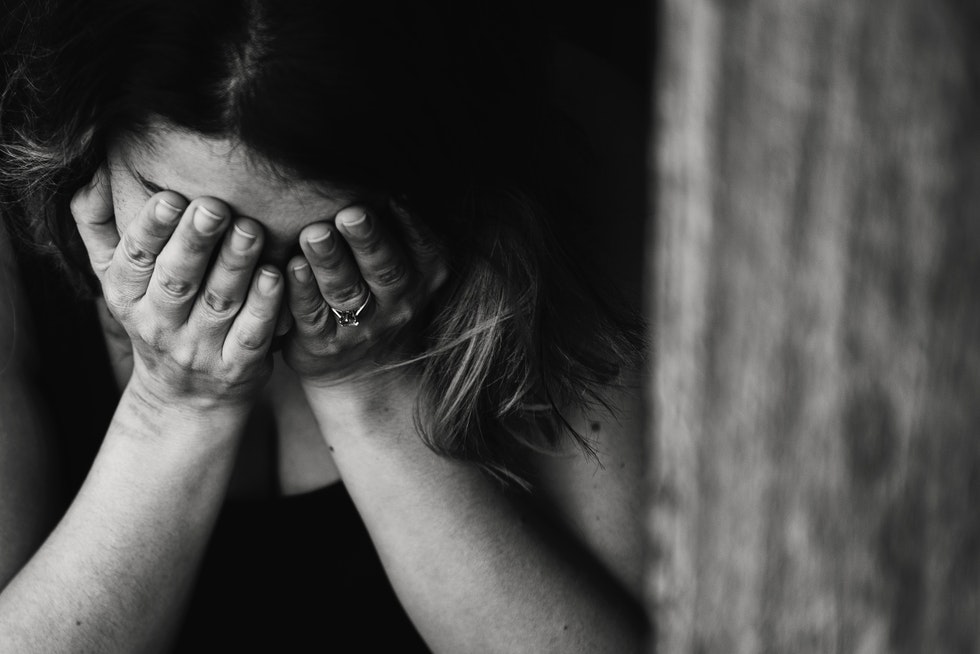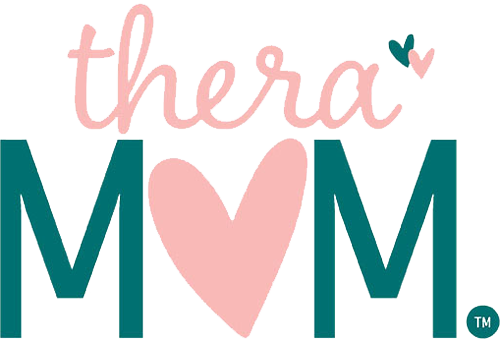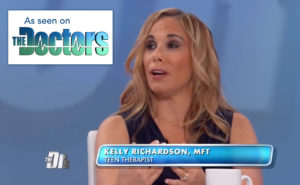And Just Like That, Everything is Different

Trauma leaves fingerprints on everyone who is involved and the effect on your psyche is undeniable. It rocks you. All day today I felt like I had thrown my back out– like I had been in the accident even though my car didn’t have a scratch on it. I felt achy, slow, and out of sorts. My friend Katherine pointed out that empathy causes physical and mental pain. She was spot on. I know I physically braced when I saw the accident happened but it’s the emotional bruise that followed the accident that still lingers. Riding in a car makes me nervous right now and I can’t help but feel skittish driving. Trauma shatters the feeling of safety we take for granted and it leaves you feeling different, somehow changed.
It made me think a lot about all the trauma people are experiencing in the world today. This year has been terrible for America. The destructive forces of hurricanes, flooding, California’s wildfires, and a handful of less-publicized weather events are putting 2017 on track to be one of the worst years for costly natural disasters in recent history. Add to that the horrific shootings at the Fort Lauderdale Airport, San Bernardino school and the Las Vegas concert, it’s no wonder people feel unsafe and anxious. Our world feels upside down. Moments of trauma and tragedy seem to surround us, engulf our news, and rob us of feeling truly secure.
Last week it hit very close to home as Napa and Sonoma County were hit by raging fires that decimated homes, businesses, and communities. They were sudden, unexpected and overwhelming. Images of the destruction look apocalyptic and the destruction is unimaginable. The fires wreaked havoc on structures of all sizes but more importantly families and lives.
I can’t help but think of all the college aged kids that left home for school in the fall and will never see their home again. They left their rooms, childhood memories, year books, baby books, personal treasures and assumed everything would stay the same until they returned. Little did they know, nothing will ever be the same. Their home base, their safe place, their nest is gone.
I can’t imagine how helpless it must have felt to be miles away from their families and the community that raised them and unable to do anything but wait and watch. Social media blew up and it was hard to tell what was real and what wasn’t. Power outages and cellphone disruptions added to the chaos amid the fast-spreading blazes. Imagine experiencing that when your loved ones are involved and you are unable to get ahold of them to confirm their safety. Imagine the fear of wondering if your beloved pets are alive or if your neighbors who you grew up with still have a place to lay their head at night. Feeling helpless in a situation like that is traumatic, even if you aren’t there to witness the actual situation. The effects are damaging and the sadness that surrounds it is overwhelming.
Trauma shows up in all parts of our lives from violent crimes and abandonment to sexual, emotional, or physical abuse to war or the devastation by natural disasters such as fires and hurricanes. Big events are easy traumas to identify but we can’t discount other traumas such as car accidents, divorce, sudden illness, financial or legal issues and experiencing the death of a loved one. Even though they are more common, it doesn’t mean the pain associated is any less. Smaller traumas are often overlooked and people avoid being perceived as overly dramatic so they internalize their feelings. Stuffing the emotions is emotionally and physically unhealthy and can cause increased distress and trouble with emotional functioning. Even when we stuff the painful emotions so far down we think we forgot about them, something will happen and the hurt and stressful feelings re-emerge, often to our surprise.
People handle trauma differently and there is no “right” or “wrong” way to respond. It’s not the objective facts that determine whether an event is traumatic, but your subjective emotional experience of the event. The more frightened and helpless you feel, the more likely you are to be traumatized. Some people will have no ill effects; others may suffer an immediate and acute effect. Still others may not show signs of stress until sometime after the event. People frequently feel stunned, disoriented, shocked or unable to integrate distressing information. The emotions can feel intense, confusing, and frightening. Longer-term reactions include unpredictable emotions, flashbacks, anger or rage, nightmares, strained relationships, guilt, and even physical symptoms like headaches or nausea. While these feelings are normal, some people have difficulty moving on with their lives and healing.
I was talking with a patient this week about how he had “shelved” his feelings for so long it became his coping skill for dealing with uncomfortable emotions. Whenever he experienced anything negative or upsetting, he mentally put both the experience and the painful emotions on a shelf, in a closet, and shut the door. We used this analogy to process and understand why he recently became emotionally overwhelmed and normal functioning suddenly became difficult. In his own words he articulated it beautifully… “The shelf couldn’t hold anymore. It got too heavy. It crashed down and so many emotions spilled out.”
Overcoming traumatic stress is all about taking action and regaining a feeling of empowerment. Healing from trauma takes time. Positive action can help you overcome feelings of fear, helplessness, and hopelessness—and even small acts can make a big difference. Helpful tools like journals, art and music can help process the event and allow sharing of feelings in a way that feels safe and non-threatening. Yoga is a great tool for practicing relaxation and mindfulness. Exercise can be a helpful way to distract the thought process and allow the body to not feel as stuck emotionally. If you struggle to find the motivation to exercise, start playing your favorite music and just moving around or dancing. Once you get up and moving, you’ll start to feel more energetic and release “feel good” endorphins that will boost your mood.
Simple things like eating better, good sleep and avoiding alcohol and drugs can decrease the feelings of anxiety, depression, and isolation associated with trauma. People often turn to alcohol to numb the pain but running from the emotions only prolongs the healing. Comfort can be found by simply being with people, even if the idea of talking about the trauma feels initially overwhelming. Take advantage of support groups, church groups, and community organizations. Finding a safe place and safe professional to process the hurt is essential to aiding the healing process if the trauma paralyzes you and it feels hard to move forward. The best way to work through trauma is to go through it with someone you trust.
For many people trauma is handled by volunteering or donating to a cause connected to the tragedy. Helping others somehow makes us feel better, less vulnerable and gives us a sense of power that we can make a difference. Giving yourself permission to feel good is important too. You can have periods of joy even when coping with trauma or loss and often people feel guilty for surviving or being happy. Take time to adjust and anticipate this will be a difficult time in your life. Allow yourself to mourn the losses you have experienced and try to be patient with changes in your emotional state.
One positive take-away from all these tragedies is that human goodness comes out. People step up and they rise above themselves. It’s heart-warming to see people donating supplies to the Red Cross, picking up food for shelters or making comfort packages for those affected by the disaster. Stories of doctors and nurses coming together to take care of those injured and simple acts like people making sandwiches and dropping them off for first responders. Kindness shows up by fostering animals or offering supplies and comforts to displaced and evacuated pets. Doing something for others you don’t know just because it’s the right thing to do is at the core of humanity. Times of distress or trauma make people judge less, do more and come together.
The more connections we have after a trauma or disaster and the stronger our bonds are to each other, the more likely we are to emotionally survive. Social connection is particularly important under stress because stress naturally leads to a sense of vulnerability and loss of control. It’s when we face the toughest times that our true nature reveals itself: we’re all in this together.
Though no one wants to face trauma or a catastrophe, it can bring unexpected gifts of seeing the human spirit at its’ best. Understanding our shared vulnerability may be frightening, but it can inspire kindness, connection, and desire to support each other. Life makes no promises but we are better together and after tragedy comes unity.
If you have experienced a trauma, rest assured you are not alone. Lean on those around you to help you heal. Treat yourself and your body with compassion and love. Go slow. Listen to what you need and speak up if you need help. Use your voice. Tell your story. If you feel there is no one you can talk to, consider calling a crisis line, going to a crisis center, or using other community resources— they are there to help you. Do something that feels good- sit in the sun, take a bath, go on a walk, see a movie, read—whatever feels right. It’s important to keep in mind that everyone’s reaction is different and to allow room for your own reaction to be exactly what it is. Have hope. Know that you can and will feel better.
Going through a trauma makes us aware and protective of that which is sacred: our well-being, our joy, our health, our safety, our family, our memories, and our freedom. It makes us hit the reset button and remember what is most important: to love and be loved. And from kindness, compassion and love comes humanity and that is what enables us to survive and find hope in what lies in tomorrow.









Witnessing my horse break a leg and having to be put down traumatized me like nothing else in my life… divorce, heartbreak , human deaths….etc……
It changed me forever ….my own PTD episode. It’s taken years to process the trauma and my reaction to it. I’ve had to be gentle with myself and acknowledge that for whatever reason this particular event was my game changer. I’m glad to say that I’ve been able to move ahead after years of breaking down… I’ve accepted it and the new me. I learned a few lessons along the way that a horrible loss can lead to a new gain…… it just takes time.
So beautifully written Kelly and so much wisdom here. Thank you for sharing your personal story and helping your readers with ways of taking care of others and ourselves.